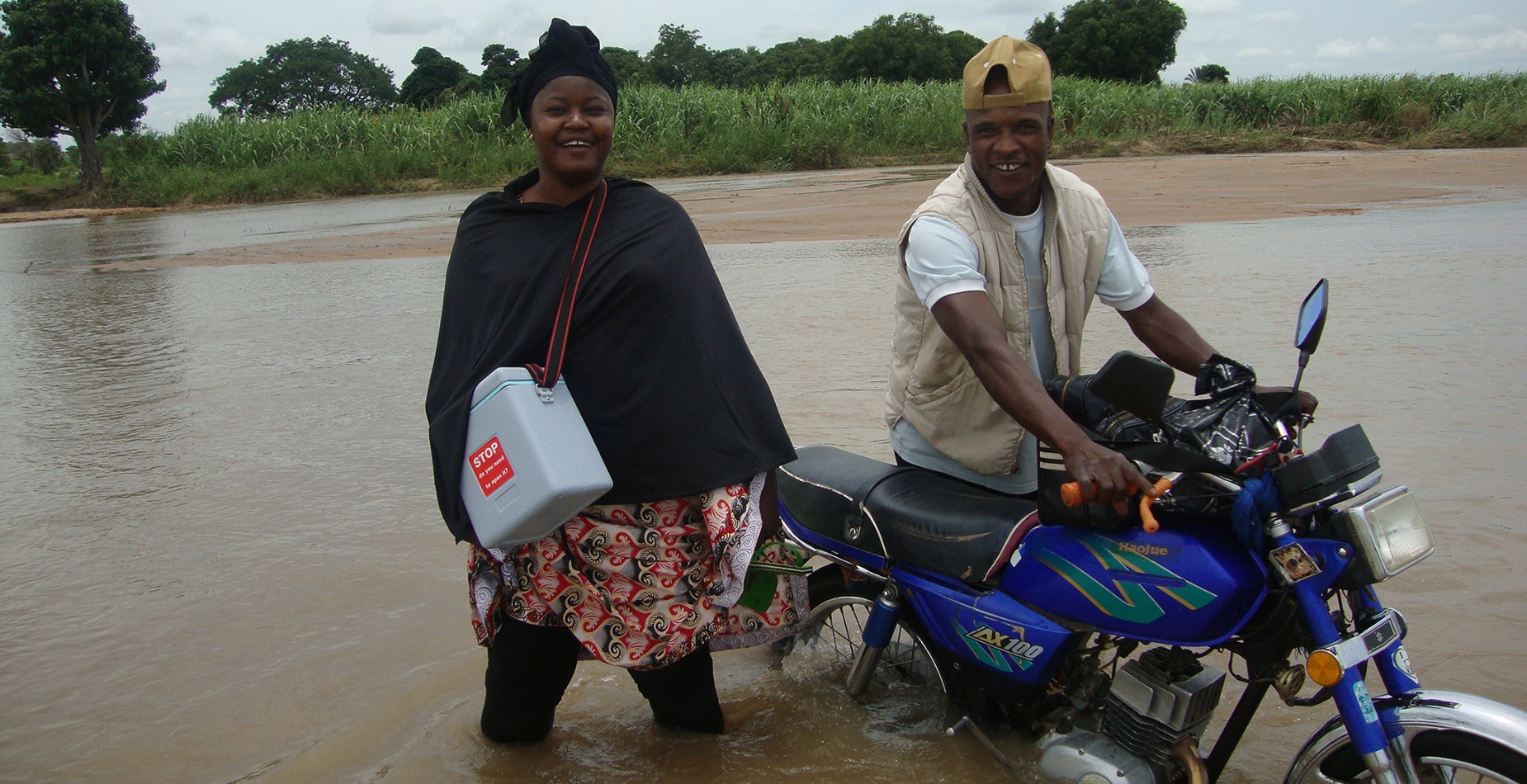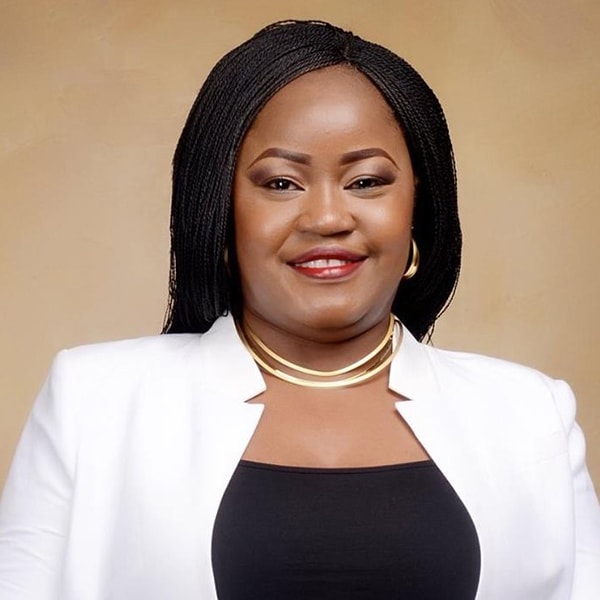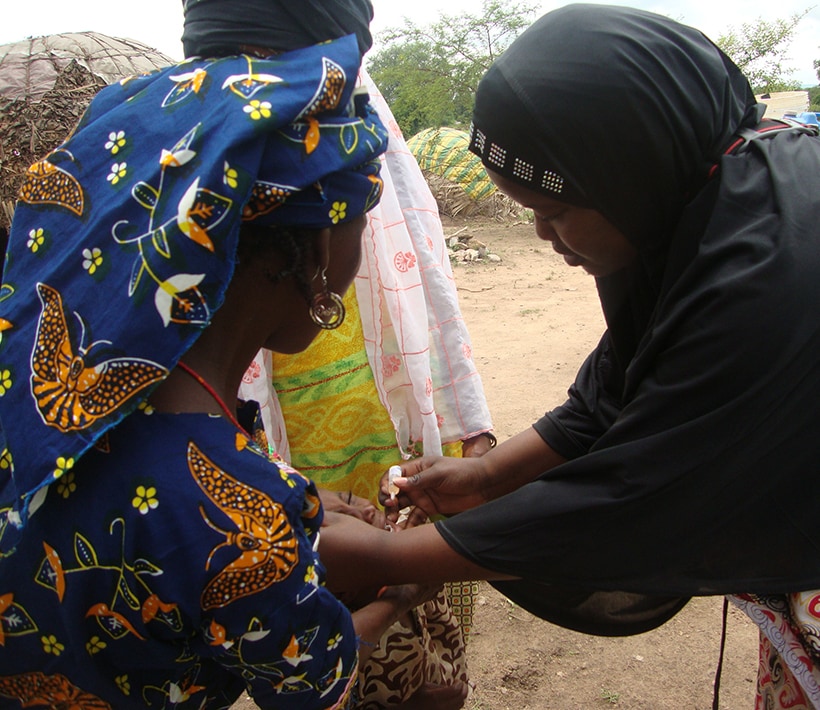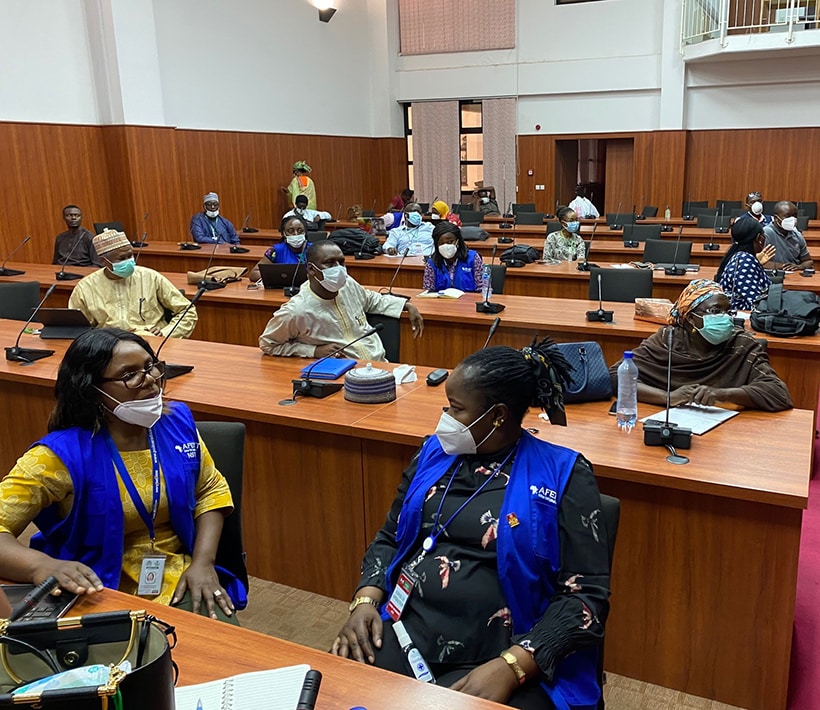Dr. Waziri – Helping to Build a Stronger Workforce in Nigeria through FELTP


Dr. Ndadilnasiya Endie Waziri
Nigeria FETP Graduate
Dr. Ndadilnasiya Endie Waziri is the current National Coordinator of the National Stop Transmission of Polio Program (NSTOP) at the African Field Epidemiology Network Office (AFENET) in Nigeria, where she provides both technical and administrative oversight of the program and over 300 staff.
As a graduate of Nigeria FELTP, Dr. Waziri embodies what the FETP program seeks to do: train competent, highly successful leaders who create greater public health capacity in their countries. We asked Dr. Waziri to share how FELTP has impacted her career and the public health system in Nigeria.
After receiving my master’s in veterinary preventive medicine, epidemiology, and public health in 2007, I went to work for the National Veterinary Research Institute (NVRI) in Vom, Plateau (Nigeria). My goal was to protect human health through the One Health approach, in which knowledge and skills bridge the gap between human and animal health. Shortly after starting work there, Nigeria experienced a poultry-based outbreak of avian influenza that threatened to spread to humans. Applying my background in veterinary research and public health, I went to coordinate the surveillance and data management.
Building Public Health Capacity through the Nigeria Field Epidemiology and Laboratory Training Program
I learned of the CDC-supported Nigeria Field Epidemiology and Laboratory Training Program (NFELTP) after my work with the avian flu outbreak. I applied, interviewed, and was selected as part of the first cohort in Nigeria in 2008. Participating in NFELTP is undoubtedly one of the best and most rewarding decisions I have made in my career. The training I received as a FELTP resident built my skills and competencies in epidemiology, outbreak response, and surveillance— the foundations of public health. During training, I participated in various outbreak responses and helped set up and evaluate surveillance systems. As I moved through the program, I applied my training in real-life public health settings. I had the unique opportunity to learn, share ideas, and collaborate with some of the best minds in the field. FELTP training takes you places and puts in you in spaces where you would not expect to be in so early in your career development.
Tracking and Controlling the Ebola Outbreak
In 2014, Ebola struck Nigeria. By this time, Nigeria had a pool of nearly 100 NFELTP graduates and residents working as frontline responders doing contact tracing. I led the epidemiology, surveillance, and contact tracing efforts of the Ebola response. This terrifying new outbreak forced us to apply the principles of outbreak investigation for infectious diseases that we learned in FELTP. We also developed and deployed a real-time data collection system, the Surveillance Outbreak Response Management and Analysis System (SORMAS). The system allowed us to monitor and follow up on contacts for prompt detection of developing symptoms. SORMAS has since been adapted as the primary tool for surveillance and outbreak response in Nigeria. I am so proud and honored that Nigeria’s response to the Ebola outbreak won the CDC award for the best FETP in outbreak response in April 2015.
Leading Polio Eradication Efforts

Dr. Endie Waziri vaccinating a nomadic Fulani child in Gwaskaram, Bauchi State, Nigeria. Photo: NSTOP Team
I continued to build on my FELTP training when I became a senior field coordinator with African Field Epidemiology Network (AFENET) in 2012. In that role, I helped strengthen coordination of the Polio Eradication Initiative (PEI) at the national level, by supervising field coordinators in all polio eradication activities. In 2014, I became the deputy national coordinator of NSTOP and moved into my current position as the national coordinator of the program in 2015.
NSTOP is a game-changer in the Nigerian polio eradication program. We identified numerous communities that had never been reached with immunization services and vaccinated the children in those communities. We also ensured that these communities were linked to other vital healthcare services. Under my NSTOP leadership, Nigeria has gone more than three years without a new case of polio. Africa is set to be declared wild polio-free this year by WHO. On June 19, 2020, Cameroon, the Central African Republic, South Sudan, and Nigeria were certified as free of wild poliovirus by the Africa Regional Certification Commission – an enormous milestone for Africa. Beyond the milestones and accolades, one of the greatest joys in my life is seeing children in the most remote areas receive healthcare services they need. Access to healthcare provides children with the opportunity to live and hope for a brighter future.
Nigeria FELTP Today and Tomorrow
CDC has provided tremendous technical support to NFELTP’s development and sustainability by providing a pool of involved subject matter experts, helping residents build capacity and other key skills.

Dr. Endie Waziri attending the Federal Capital Territory Emergency Operations Center Meeting for COVID-19. Photo: Mr. Asafa
Today, the NFELTP has close to 500 residents and graduates, making Nigeria the largest field epidemiology training program in Africa. Because of the large number of FELTP residents and graduates, our program can lend a helping hand to neighboring countries during public health emergencies.
Over the years, I have supported NFELTP in various capacities. As the national coordinator of NSTOP, I continue to provide a platform for NFELTP graduates and residents to be part of the polio eradication program in Nigeria. I teach, mentor, and supervise current residents, and will continue to advocate for FELTP at all levels. As part of the COVID-19 response, I led the development of standard operating procedures for contact tracing, adopted by the Nigeria CDC.
I believe the future of NFELTP is bright. I envision NFELTP being directly involved in critical public health decisions, capacity building, and policymaking. My enduring hope for Nigeria is that the ongoing efforts to build capacity and improve the public health system will result in a stronger workforce, more effective surveillance, and an established infrastructure ready to respond effectively to emergencies when they occur.
